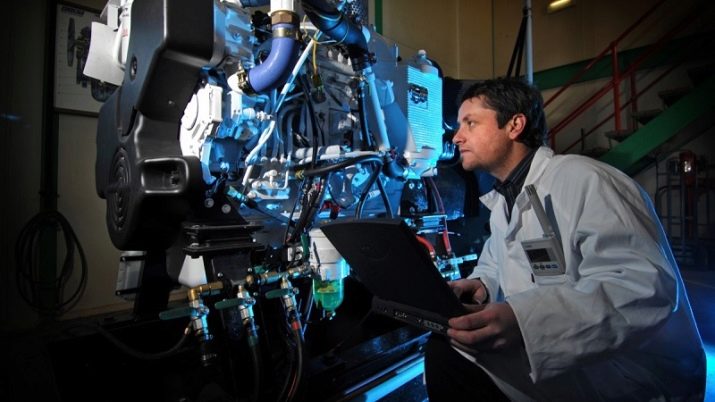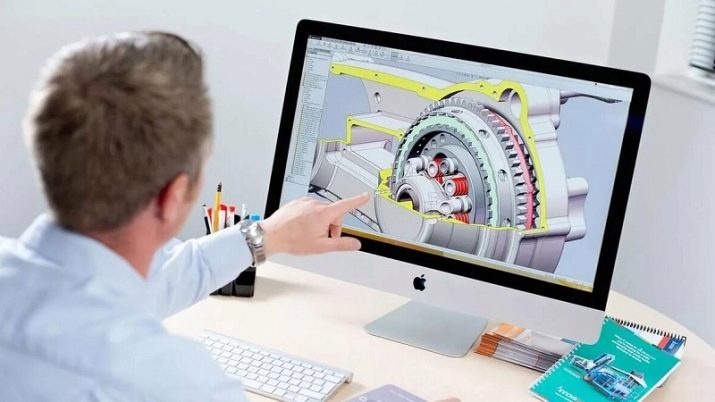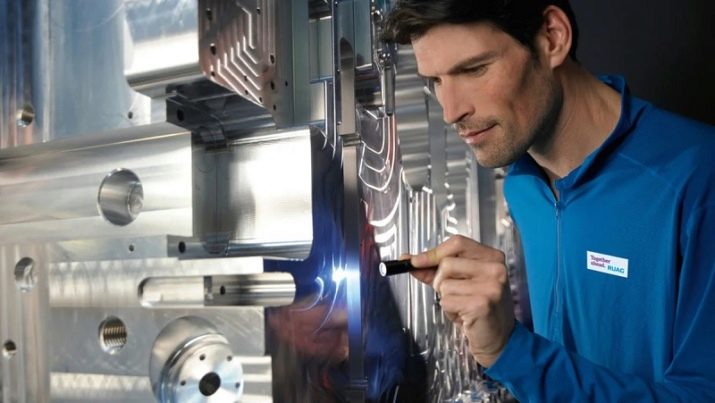All about the profession of engineer

An engineer is a rather interesting, relevant and promising profession. Almost no production or research institution can do without these specialists. For those young people who plan to engage in engineering, it will be important to find out how the professional standard and other qualification documents characterize the work of engineers of a particular specialization. It is no less important to study the responsibilities of engineers in accordance with their job descriptions. In addition, information about how much such an employee earns in modern organizations of our country is also important.
Peculiarities
In short, the main task of a production engineer is to thoroughly understand the technological processes, complex mechanisms and equipment necessary for its normal and cost-effective functioning. It is impossible to name a branch of industry or transport, energy or construction, where people with engineering knowledge would not be required. The definition of the word engineer in the dictionary says that it is "a specialist with a higher technical education." However, the typical verbal formulations conceal much broader concepts, including what such a specialist does in his position.
A more detailed description of the profession focuses on the fact that an engineer should not only know the technological process under his control. He needs to have a professional idea of the whole cycle of its functioning from receiving a development order to the safe disposal of its spent components.

You have to deal with:
- adjustment;
- reconstruction;
- assembly and dismantling works;
- repair;
- tests;
- certification;
- checking the operability of devices.
Representatives of the engineering profession develop new or improve existing technical and design solutions, as well as monitor their performance and compliance with established requirements. The most advanced developments often border on (and even become) inventions. It should be noted that the training program for engineering personnel belongs precisely to the category of specialty. However, abroad such a classification has already become exotic. If we talk about the characteristics of the corresponding position, then engineers everywhere belong to the category of employees. For information: this group includes, for example, accountants.
To enter such a specialty, you will have to pass entrance exams. Most often in such subjects:
- maths;
- chemistry;
- physics;
- Russian language.
But it all depends on the focus of specific faculties. So there may be some difference from the above list of items.

Advantages and disadvantages
The most important positive side of this profession is its relevance. A wide variety of commercial enterprises, government and public structures can hire specialists. Engineers are needed in educational, medical and cultural institutions, government bodies and even in the military department. Much depends on the specialization acquired during training. A competent engineer will be able to understand related areas of technology, and can, if necessary, expand their career prospects with additional training.
The development of technology is ongoing, so professionals who know its features will always be in demand. But that is precisely why you will have to constantly work on yourself, get acquainted with relevant information and fresh professional literature. At the same time, you can embody your own ideas and advance technical progress. It should be noted that studying to be an engineer is not easy.
To master this profession, you will have to master mathematics, computer science, and other specialized technical disciplines at a high level. And the engineering practice itself is distinguished by a monotonous and painstaking nature, since the bulk of the time is spent studying various existing documentation and drawing up new ones.

Those professionals who are not bothered by all this find work pretty quickly. Many yesterday's students who have successfully completed their studies in engineering and have shown themselves well in business will be able to take a promising position within six months. There are many employment options, so you can choose the most suitable one for yourself. It should be noted that the engineering profession has its own specific ethics. And although it is sometimes difficult to follow it, this is the only way to satisfy all the requirements of society, customers and employers.
A good engineer in his place should always take care of the following things:
- about the safety and reliability of the created equipment and systems in which it is included;
- about the safety and comfort of workers who somehow come into contact with this technique;
- on the performance of work only in the area of their competence (work on other profiles is not allowed);
- about responsibility for any public statement (even in a relatively limited circle);
- on maintaining the honor and dignity of the professional community;
- about continuous professional development during the period of their activity;
- on the avoidance of situations of conflict of interests;
- about maximum honesty and conscientiousness in the performance of their duties (regardless of the legal, organizational and economic forms of interaction with other people).

The good news is that an engineer, as his skills grow, the range of competencies expands, and more and more complex projects are completed, can count on an adequate increase in income. There are enough opportunities for raising the qualification level and participating in serious developments in our country (and in other developed countries as well). Able, skillful and responsible employees can, over time, take solid positions in large firms and government departments. The list of responsibilities of an engineer is limited, so he is treated much more respectfully than a sales manager, system administrator or bank teller.
This specialist most often acts according to a personally worked out schedule. This approach allows you to evenly distribute efforts and implement the task quite quickly. True, the work is unnecessarily monotonous. At the same time, it is impossible to reduce the concentration even for a short time - any mistake threatens with a drop in production efficiency and even serious dangers and accidents. Only purposeful and persistent people can achieve heights in the profession. A passion for mathematics and physics is not enough here. Other disadvantages include the following:
- systematic encounter with harmful factors (in tests and in production): noise, vibration, toxic substances, and so on;
- not too much income at first;
- high risk of injury (in mining operations, when working with industrial equipment or electrical communications).

Responsibilities
In any specialization, most engineers are engaged in:
- design and creation of information bases;
- technical and economic analysis;
- solving basic production tasks;
- preparation of normative materials and manuals;
- preparation and implementation of rationalization proposals;
- testing of newly developed equipment;
- assessment of the suitability of new equipment for further operation;
- clarification of the working capacity of old technology;
- determining the maintainability of damaged devices;
- introduction of the latest scientific and technical developments into practice;
- preparation of documentation in the course of their work.

To fulfill these responsibilities, the basic rights of engineering personnel are also prescribed in job descriptions. Thus, an engineer has the right to demand:
- assistance in the development of a new idea and technique (and in its use);
- optimization of the delivery of equipment, inventory, consumables, personnel changes among subordinates;
- the necessary documentary information (in the required form and volume);
- raising their qualifications at the expense of the employer, who himself should be interested in this.
In the professional standard for the position of an engineer, the following duties are indicated:
- direct participation in the planning and development of production on an equal basis with managers;
- ensuring compliance with technology throughout the enterprise as a whole and in its individual sections;
- preservation (within reasonable and justified limits) of existing standards and norms even during production experiments, except for cases when the normative act is undeniably outdated;
- compliance with labor protection and industrial safety standards;
- control of the use by subordinates of the necessary personal protective equipment and other methods of preventing injuries;
- control of the availability of the necessary technical documentation at workplaces and its relevance.

However, each individual specialization has its own impact on the list of requirements. The following duties are established for the assembly engineer:
- Assessment of the assembly quality of various components and devices based on them;
- direct participation in the assembly (in especially difficult cases and during experimental work);
- measurement of various parameters of assembled products;
- assistance in quality control;
- checking the rationality of the production process;
- preparation of recommendations for setting up or reconfiguring assembly lines and individual machines on these lines;
- preparation of new design solutions and technical specifications for the personnel directly responsible for the assembly.
In turn, the telecommunications engineer is responsible for:
- stable and uninterrupted operation of communication lines;
- efficient transmission of all necessary information;
- documenting the main operating modes and all identified problems;
- analysis of systems operation in order to improve their reliability, convenience, bandwidth and reduce the likelihood of failures;
- preparation of instructions for the organization of work and safety measures at different sites;
- control over the actions of contractors and their individual employees for the installation, dismantling, tuning, adjustment, reconstruction and overhaul of communication lines, equipment;
- daily check of the entire entrusted communication line;
- organization of elimination of detected faults;
- planning the timing of the repair of the serviced property;
- performing other functions that are necessary within the framework of the main tasks.

Knowledge and Key Skills
The most important professional qualities and competencies that any engineer should possess are:
- ability to work with modern technology;
- correct use of the computer and special programs, as well as necessary general-purpose programs;
- possession of the basic characteristics of materials and structures;
- fluency in technical languages;
- understanding of the principles of equipment operation;
- willingness to organize the work of subordinate personnel;
- the ability to draw up projects, drawings and diagrams, to understand them, to give clear instructions on the basis of these documents.
An engineer differs from a technical service specialist not only in outlook and some skills. In addition, he is obliged to be able to act systemically, to understand as deeply as possible the internal logic of the technological process. In addition to all this, he needs to know everything about actions in emergency situations and standards for solving unforeseen problems. An information security specialist must be ready for different tasks:
- to the development of appropriate protection systems;
- to determine the risks for the circulated or stored information;
- to the analysis of the system;
- to develop measures to improve individual programs and the system as a whole;
- preparation of additional measures on a proactive basis.
As for the key personal characteristics and significant qualities of the employee, the following personal potential is noteworthy:
- analytical approach to thinking;
- fluency in mathematics (with an appropriate mindset);
- perseverance;
- endurance;
- emotional stability;
- a responsibility;
- developed spatial imagination;
- the ability to find a way out even from the most difficult situations.

Education
It is not possible to study engineering in college. This is just an imitation of normal training. The only possible option is to study in specialized areas at the university. Most graduates of the following educational institutions are considered promising:
- MIPT;
- Moscow State University;
- NRNU MEPhI;
- Petersburg Polytechnic University;
- Tomsk Research University;
- Volga Federal University;
- MISIS;
- MEI;
- Novosibirsk Technical University;
- Samara Aerospace University;
- Izhevsk Technical University;
- TUSUR;
- PSNIU.

average salary
At the very beginning of his career, an engineer usually earns from 20 to 25 thousand rubles. With experience, the average income level already ranges from 40 to 60 thousand rubles. It is very important that when occupying responsible (dangerous, technically difficult or critical) positions, an engineer sometimes receives many times larger amounts of income in Russia. In the private sector, the average salary ranges from 70 to 130 thousand rubles.On average across the country, the spread of income is from 25 to 100 thousand, and in the Russian capital the typical salary range for an engineer is 60-150 thousand rubles.
Place of work
Engineering workers of any specialization with due diligence can reach the level of a leading specialist in 2-3 years. With further development, they are entrusted with managing departments, workshops, entrusted with large projects for the future. Quite an attainable top of a career for many (if you have organizational skills) is the position of chief engineer or deputy general director.
Due to their specialization, pre-production engineers are forced to spend a lot of time at industrial facilities. Standardization specialists work mainly on computers. Information security specialists are also "tied" to computers. The main area of application of the forces of such employees is technical documentation and information materials.
This is not the case for HVAC engineers. They are no longer office employees, but professionals who troubleshoot on-site. A good technician will carry out repairs on his own.









